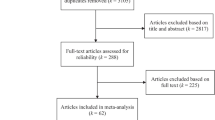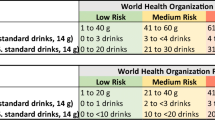Abstract
The present cross-sectional online survey study explored the relationship between character strengths, coping, and addiction recovery in a sample of 425 US individuals who self-reported to be diagnosed with or treated for alcohol or drug abuse, and are currently seeking to resolve, are working towards resolving, or have resolved an alcohol or drug problem. Measures for character strengths, substance-specific coping, general approach/avoidance coping, and addiction recovery were included. Results showed that 11 character strengths were associated with better recovery after controlling for current substance use. Net general approach coping mediated the relationships between 19 character strengths and recovery after controlling for current substance use. However, the mediation effect of substance-specific coping was not confirmed. The findings suggest that many character strengths are related to better general coping and recovery, and individual strengths may be targeted in clinical interventions to promote positive coping and addiction recovery.

Similar content being viewed by others
Data Availability
The data that support the findings of this study are available from the corresponding author upon reasonable request.
References
Allen, T. M., & Lo, C. C. (2010). Religiosity, spirituality, and substance abuse. Journal of Drug Issues, 40(2), 433–459.
American Psychiatric Association. (2013). Diagnostic and statistical manual of mental disorders (5th ed.). https://doi.org/10.1176/appi.books.9780890425596
Ashford, R. D., Brown, A., Brown, T., Callis, J., Cleveland, H. H., Eisenhart, E., … & Whitney, J. (2019). Defining and operationalizing the phenomena of recovery: A working definition from the recovery science research collaborative. Addiction Research & Theory, 27(3), 179–188.
Bachik, K., Carey, G., & Craighead, E. (2021). VIA character strengths among US college students and their associations with happiness, well-being, resiliency, academic success and psychopathology. The Journal of Positive Psychology, 16(4), 512–525.
Benjamini, Y., & Hochberg, Y. (1995). Controlling the false discovery rate: A practical and powerful approach to multiple testing. Journal of the Royal Statistical Society: Series B (methodological), 57(1), 289–300.
Bowen, S., Witkiewitz, K., Clifasefi, S. L., Grow, J., Chawla, N., Hsu, S. H., ... & Larimer, M. E. (2014). Relative efficacy of mindfulness-based relapse prevention, standard relapse prevention, and treatment as usual for substance use disorders: A randomized clinical trial. JAMA Psychiatry, 71(5), 547–556.
Carver, C. S. (1997). You want to measure coping but your protocol’s too long: Consider the brief COPE. International Journal of Behavioral Medicine, 4(1), 92–100.
Carver, C. S., & Connor-Smith, J. (2010). Personality and coping. Annual Review of Psychology, 61, 679–704.
Correia, C. J., Benson, T. A., & Carey, K. B. (2005). Decreased substance use following increases in alternative behaviors: A preliminary investigation. Addictive Behaviors, 30(1), 19–27.
Costello, M. J., Sousa, S., Ropp, C., & Rush, B. (2020). How to measure addiction recovery? Incorporating perspectives of individuals with lived experience. International Journal of Mental Health and Addiction, 18, 599–612.
Finset, A., Steine, S., Haugli, L., Steen, E., & Laerum, E. (2002). The Brief Approach/Avoidance Coping Questionnaire: Development and validation. Psychology, Health & Medicine, 7(1), 75–85.
Forys, K., McKellar, J., & Moos, R. (2007). Participation in specific treatment components predicts alcohol-specific and general coping skills. Addictive Behaviors, 32(8), 1669–1680.
Gallagher, D. J. (1996). Personality, coping, and objective outcomes: Extraversion, neuroticism, coping styles, and academic performance. Personality and Individual Differences, 21(3), 421–429.
Gareth, J., Daniela, W., Trevor, H., & Robert, T. (2013). An introduction to statistical learning: With applications in R. Spinger.
Ghosh, S., Sperling, R., & Hooper, S. (2019). Using Amazon MTurk for research in academia: A beginner’s guide for using Qualtrics, detecting VPN/proxy, limiting countries using geolocation & other tips.
Gossop, M., Stewart, D., Browne, N., & Marsden, J. (2002). Factors associated with abstinence, lapse or relapse to heroin use after residential treatment: Protective effect of coping responses. Addiction, 97(10), 1259–1267.
Graham, J. W., Cumsille, P. E., & Shevock, A. E. (2013). Methods for handling missing data. In J. A. Schinka, W. F. Velicer, & I. B. Weiner (Eds.), Handbook of psychology: Research methods in psychology (pp. 109–141). John Wiley & Sons Inc.
Guenzel, N. & McChargue, D. (2023). Addiction relapse prevention. National Library of Medicine. Retrieved June 23, 2023, from https://www.ncbi.nlm.nih.gov/books/NBK551500
Gustems-Carnicer, J., & Calderón, C. (2016). Virtues and character strengths related to approach coping strategies of college students. Social Psychology of Education, 19(1), 77–95.
Gutierrez, D., Dorais, S., & Goshorn, J. R. (2020). Recovery as life transformation: Examining the relationships between recovery, hope, and relapse. Substance Use & Misuse, 55(12), 1949–1957.
Harzer, C., & Ruch, W. (2015). The relationships of character strengths with coping, work-related stress, and job satisfaction. Frontiers in Psychology, 6, 165.
Hayes, A. F. (2022). Introduction to mediation, moderation, and conditional process analysis: A regression-based approach (3rd ed.). Guilford publications.
Hennessy, E. A. (2017). Recovery capital: A systematic review of the literature. Addiction Research & Theory, 25(5), 349–360.
Hoeppner, B. B., Schick, M. R., Carlon, H., & Hoeppner, S. S. (2019). Do self-administered positive psychology exercises work in persons in recovery from problematic substance use? An online randomized survey. Journal of Substance Abuse Treatment, 99, 16–23.
Kennedy, R., Clifford, S., Burleigh, T., Waggoner, P. D., Jewell, R., & Winter, N. J. (2020). The shape of and solutions to the MTurk quality crisis. Political Science Research and Methods, 8(4), 614–629. https://doi.org/10.1017/psrm.2020.6
McGrath, R. E. (2019). Technical report: The VIA Assessment Suite for Adults: Development and initial evaluation (rev. ed.). VIA Institute on Character. Retrieved July 20, 2023, from https://www.viacharacter.org/pdf/Technical%20Report%20Revised%20Edition%202019_1.pdf
Mellis, A. M., & Bickel, W. K. (2020). Mechanical Turk data collection in addiction research: Utility, concerns and best practices. Addiction, 115(10), 1960–1968.
Moggi, F., Ouimette, P. C., Moos, R. H., & Finney, J. W. (1999). Dual diagnosis patients in substance abuse treatment: Relationship of general coping and substance-specific coping to 1-year outcomes. Addiction, 94(12), 1805–1816.
Neale, J., Vitoratou, S., Finch, E., Lennon, P., Mitcheson, L., Panebianco, D., ... & Marsden, J. (2016). Development and validation of ‘SURE’: A patient reported outcome measure (PROM) for recovery from drug and alcohol dependence. Drug and Alcohol Dependence, 165, 159–167.
Office of Disease Prevention and Health Promotion. (n.d.). Leading health indicators. Retrieved June 23, 2023, from https://health.gov/healthypeople/objectives-and-data/leading-health-indicators
Ogilvie, L. (2022). The values in action character strengths model in addiction recovery: A case study. Advances in Dual Diagnosis, 15(3), 177–186.
Ouimette, P. C., Finney, J. W., & Moos, R. H. (1999). Two-year posttreatment functioning and coping of substance abuse patients with posttraumatic stress disorder. Psychology of Addictive Behaviors, 13(2), 105–114.
Park, N., Peterson, C., & Seligman, M. E. (2004). Strengths of character and well-being. Journal of Social and Clinical Psychology, 23(5), 603–619.
Peterson, C., Park, N., & Seligman, M. E. (2006). Greater strengths of character and recovery from illness. The Journal of Positive Psychology, 1(1), 17–26.
Peterson, C., & Seligman, M. E. P. (2004). Character strengths and virtues: A classification and handbook. American Psychological Association.
Prochaska, J. O., Velicer, W. F., DiClemente, C. C., & Fava, J. (1988). Measuring processes of change: Applications to the cessation of smoking. Journal of Consulting and Clinical Psychology, 56(4), 520–528.
Roos, C., Bowen, S., & Witkiewitz, K. (2020a). Approach coping and substance use outcomes following mindfulness-based relapse prevention among individuals with negative affect symptomatology. Mindfulness, 11(10), 2397–2410.
Roos, C. R., Carroll, K. M., Nich, C., Frankforter, T., & Kiluk, B. D. (2020b). Short-and long-term changes in substance-related coping as mediators of in-person and computerized CBT for alcohol and drug use disorders. Drug and Alcohol Dependence, 212, 108044.
Schulte, M. T., & Hser, Y. I. (2014). Substance use and associated health conditions throughout the lifespan. Public Health Reviews, 35(2), 3.
Selvam, S. G. (2015). Positive psychology’s character strengths in addiction-spirituality research: A qualitative systematic literature review. Qualitative Report, 20(4), 376–405.
Shumway, S. T., Dakin, J. B., Smock Jordan, S. A., Kimball, T. G., Harris, K. S., & Bradshaw, S. D. (2014). The development of the hope and coping in recovery measure (HCRM). Journal of Groups in Addiction & Recovery, 9(4), 280–293.
Smedema, S. M. (2017). Amazon Mechanical Turk as a rehabilitation research participant recruitment tool. Journal of Rehabilitation, 83(4), 3–12.
Stevens, E., Jason, L. A., Ram, D., & Light, J. (2015). Investigating social support and network relationships in substance use disorder recovery. Substance Abuse, 36(4), 396–399. https://doi.org/10.1080/08897077.2014.965870
Strickland, J. C., & Stoops, W. W. (2019). The use of crowdsourcing in addiction science research: Amazon Mechanical Turk. Experimental and Clinical Psychopharmacology, 27(1), 1–18.
Substance Abuse and Mental Health Service Administration. (2023). 2021 National Survey of Drug Use and Health (NSDUH) Releases. Retrieved June 23, 2023, from https://www.samhsa.gov/data/release/2021-national-survey-drug-use-and-health-nsduh-releases
Substance Abuse and Mental Health Services Administration. (2021). 2020 NSDUH detailed tables. Retrieved June 23, 2023, from https://www.samhsa.gov/data/report/2020-nsduh-detailed-tables
VIA Institute on Character. (2022). Bring your strengths to life & live more fully. Retrieved June 26, 2023, from https://www.viacharacter.org/
Yan, T., Chan, C. W., Chow, K. M., Zheng, W., & Sun, M. (2020). A systematic review of the effects of character strengths-based intervention on the psychological well-being of patients suffering from chronic illnesses. Journal of Advanced Nursing, 76(7), 1567–1580.
Acknowledgements
The authors would like to thank Dr. Daniel Bolt, Dr. Malachy Bishop, and Dr. Timothy Tansey for their suggestions and feedback on study design and statistical analysis.
Funding
The study was funded by the 2021 Foundation for Rehabilitation Psychology Dissertation Award.
Author information
Authors and Affiliations
Corresponding author
Ethics declarations
Ethics Approval
All procedures followed were in accordance with the ethical standards of the responsible committee on human experimentation (institutional and national) and with the Helsinki Declaration of 1975, as revised in 2000 (5). Informed consent was obtained from all patients for being included in the study.
Conflict of Interest
The authors declare no competing interests.
Additional information
Publisher's Note
Springer Nature remains neutral with regard to jurisdictional claims in published maps and institutional affiliations.
Rights and permissions
Springer Nature or its licensor (e.g. a society or other partner) holds exclusive rights to this article under a publishing agreement with the author(s) or other rightsholder(s); author self-archiving of the accepted manuscript version of this article is solely governed by the terms of such publishing agreement and applicable law.
About this article
Cite this article
Huang, Y., Smedema, S. Character Strengths, Coping, and Addiction Recovery: a Mediation Analysis. Int J Ment Health Addiction (2023). https://doi.org/10.1007/s11469-023-01211-x
Accepted:
Published:
DOI: https://doi.org/10.1007/s11469-023-01211-x




